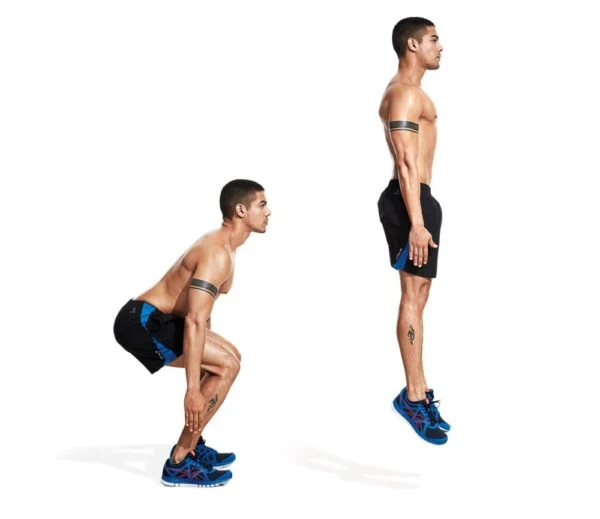The Best Workouts For Big And very Strong Calves
Calves seem to be the most overlooked body part in the lower body. Did you know it’s vital that your calves support you through every movement or you risk serious injury? You can’t even rely on upper leg exercises like squats and deadlifts to completely develop diamond calves
Likewise, it does little good to train the rest of your body but leave your calves alone. You won’t be able to effectively stabilize the weights you’re moving and lifting outside of general workouts – meaning there’s no practical application for your muscle mass. Worst of all you will look like you’ve got chicken legs
Some of these exercises require the use of weights while others use little more than natural physical resistance. For additional resistance in any exercise you can add additional weight by using body straps or free weights or by increasing the resistance of a machine if one is used
Start working through these top 5 exercises for increasing your calf muscles to ensure that you establish and maintain a well-rounded workouta
Standing Barbell Calf Raise
The number of reps you do for this exercise will vary depending on your current calf mass and workout routine. Test different ranges to see which works for the density of your calf muscles
How to
Set up for the standing barbell calf raise by getting a block or step and placing it in front of you.
Grasp a barbell and place it across the back of your shoulders.
Stand up on the block with the balls of your feet on the edge.
Keeping your balance, raise your heels off the floor.
Squeeze the calves, and then slowly lower your heels back down as far as possible without letting them touch the floor.
Repeat for desired reps.
Seated Calf Raise
This is a calf exercise that is necessary to achieve complete development of the calf muscles. While this movement is similar to the standing calf raise, the seated calf raise will actually target the lower muscles of the calf
How to
Sit with the machine pads resting on your thighs.
Drop your heel to 2-4 inches depending on how flexible you are.
Raise again and squeeze the calf muscles once you reach the top.
The rep range for this workout, as well as the standing calf raise, should between 10 and 20 depending on the needs of your body and what you can tolerate
Leg Press Calf Raises
This is a tried and true exercise that has been in use for years known also as the donkey raise. Because of the nature of the exercise it has the most potential for getting a deeper pull in the calf muscles. The workout can be intensified with added weights, so you can avoid having to do calf presses with someone sitting on your back
How to
Sit on the leg press machine and hold the sled with only your toes and the balls of your feet.
Do not move with your hips or knees and instead put all the movement into your ankles.
This puts all the emphasis on your calf muscles and nowhere else in the leg.
Box Jumps
In many lifting exercises you need to have explosive strength in your legs. The box jump offers that, as it’s a functional exercise made to give your calf muscles far more power and “spring”. This exercise can train your muscles to react and contract much more quickly, and will deliver some serious tone to your calf muscles
How to
Stand on the balls of your feet and you toes in front of a box, with the height appropriate to your limitations.
Jump onto the box and land again on your toes and the balls of your feet.
Jump back down to the floor and repeat for 8 to 10 reps.
Do not use dumbbells or other held weights during this exercise as you may need your hands free in order to catch yourself if you trip.
Jump Squat
While this movement does also work the upper leg muscles it focuses a great deal of attention on the calf muscles as well and is an integral part of any whole body workout. Like the box jump, the jump squat can help add explosive power to your workout routine







